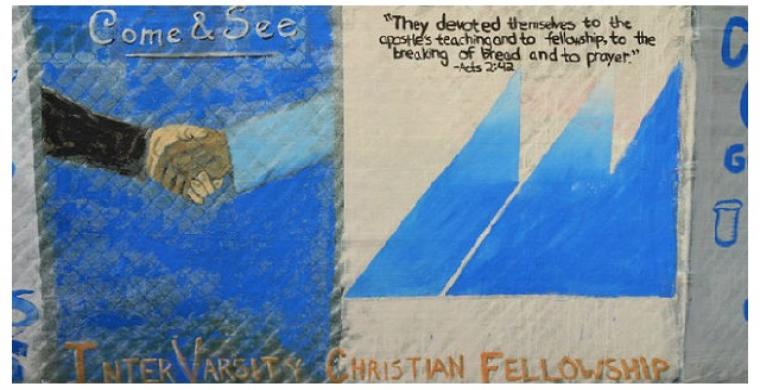Will InterVarsity Losing Cal State Standoff Be Tipping Point for Campus Ministries Nationwide?
America’s largest university system withdraws recognition from 23 student groups for not allowing non-Christian leaders
By Sarah Eekhoff Zylstra
www.christianitytoday.com
September 8, 2014
Despite a year's worth of persuasion and a New York Times article that sparked widespead support this summer, InterVarsity Christian Fellowship has lost campus access in America's largest university system because it requires student leaders to affirm Christian doctrines.
California State University has told the campus ministry that “no exemption can be made” to a new non-discrimination policy that requires leadership positions be open to all students, InterVarsity announced in a monthly prayer letter. Now 23 student chapters are no longer recognized by their universities as official student groups, losing free access to rooms for meetings and student activities fairs for recruiting.
“While we are disappointed, we know God is sovereign,” stated InterVarsity. “He holds the decisions of Cal State and the future of our chapters in his hands. We believe he hears our laments and our requests for intervention.”
The ministry requested prayer for “financial partners to cover the additional costs associated with ministry on campuses where we are no longer able to reserve free meeting space and promote our chapters in the same way we have in the past.” [Video below]
"This could be the tipping point of other university systems moving in this direction, so that's why we are concerned,” InterVarsity president Alec Hill told CT earlier this summer. While only a handful of universities have enacted such policies, Cal State’s 450,000 students on 23 campuses could tip the scales “in the sense of public policy and other university systems moving in this direction,” he said.
While the university’s policy asks that the president of each student group sign a statement “attesting that the organization has no rules or policies that discriminate on the basis of race, religion, national origin, ethnicity, color, age, gender, marital status, citizenship, sexual orientation, or disability,” in reality, there are often exceptions, Hill said. Greek societies, athletic groups, and honor societies are all allowed to discriminate on the basis of gender or intelligence, he said.
“It’s as if the First Amendment now protects Greeks but not religious folks, which is Alice in Wonderland stuff,” he said. “It really is peculiar.” (Following a prominent NYT article, others agreed, including the The Denver Post and even Mother Jones’s Kevin Drum.)
Even before the Christian Legal Society (CLS) narrowly lost its 2010 Supreme Court case protesting the Hastings School of Law’s “all comers” policy, universities were struggling to find a balance between religious freedom and antidiscrimination. (The 5-4 decision affirmed Hastings’s policy that all student groups open all leadership positions to all students, regardless of whether the students agree with the group’s statement of faith.)
As far back as 1997, Grinnell College in Iowa banned InterVarsity because of its unwillingness to select a noncelibate gay leader. Later, several schools including Tufts University, Rutgers, and the University of North Carolina (UNC) also derecognized InterVarsity because requiring leaders to be Christians violated the schools' anti-discrimination codes. UNC reversed its decision just weeks later; Rutgers settled out of court; and Tufts reinstated InterVarsity but later reversed it. InterVarsity recently lost campus access at SUNY Buffalo and Bowdoin College as well.
END














